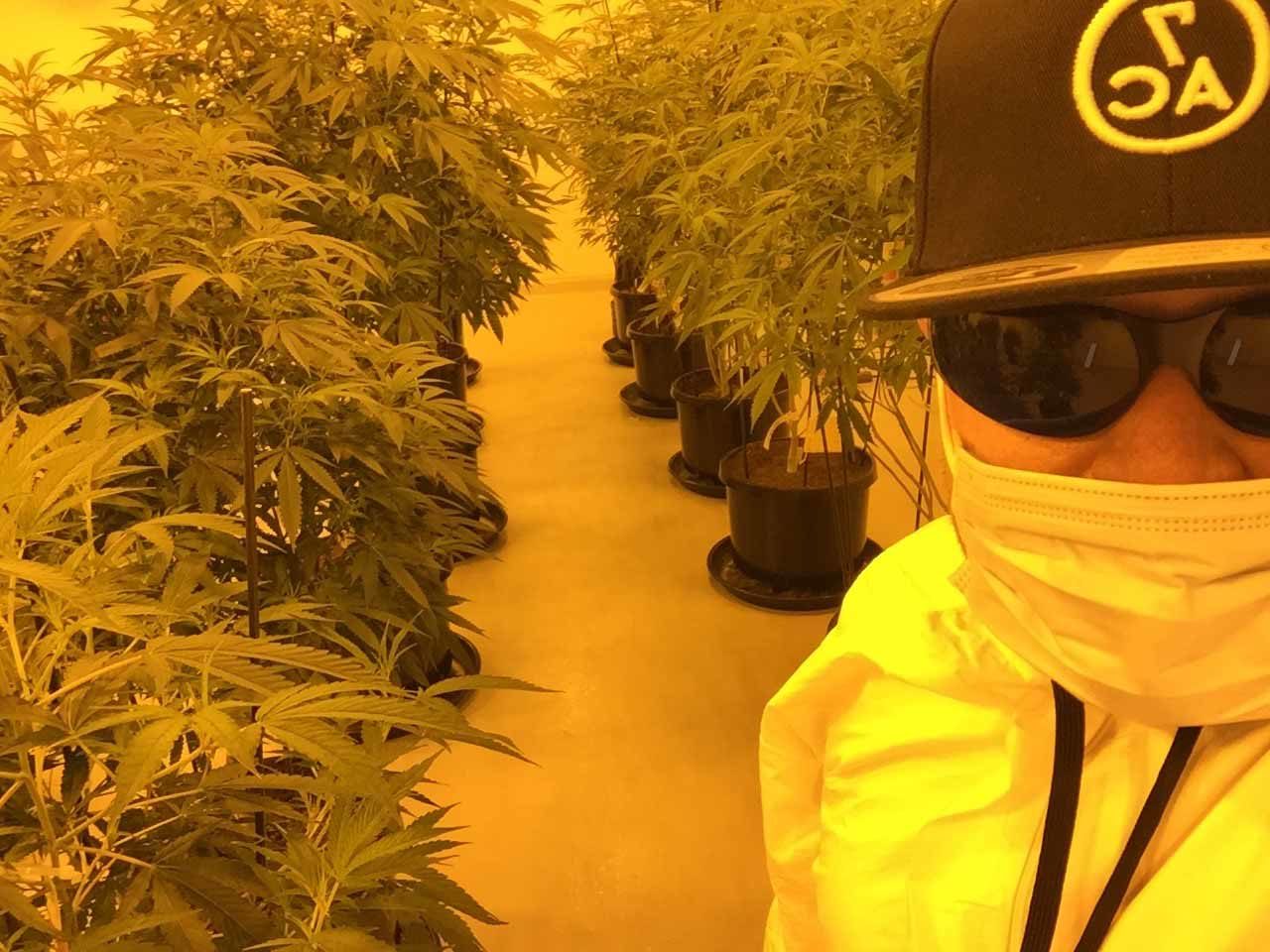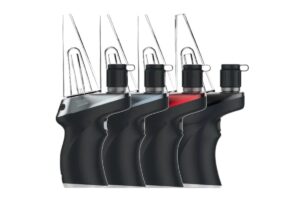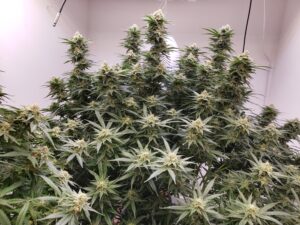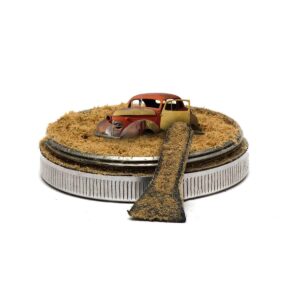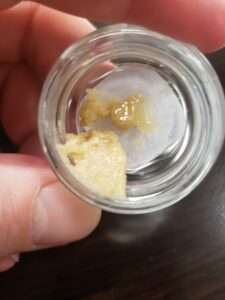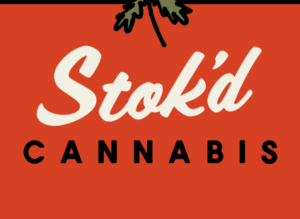Meet Earl Oliver, PhD and Cannabis Activist Investor
I first entered the industry as an investor in mid 2015. I had sold my home in Waterloo, ON and moved to Silicon Valley to build a technology company. I only consumed cannabis casually with a close friend who got chronic migraines, and didn’t follow the industry at all. As an investor, I just knew that it was an emerging sector and the election of the Liberal Party would be a catalyst for growth. Those investments did well and in late 2017 I was looking for the next opportunity. At the time, Vodis Pharmaceuticals was overdue for a Health Canada licence. They had received their ready to build letter under the MMPR in January 2014, so by late 2016 I figured they were close, rolled the dice, and accumulated a significant position on the market. I also participated in a late 2016 private placement. I had a pretty sizeable position by the end of 2016.
Then my startup was running out of capital. I either had to either get a normal job in the bay area, or find another project. I moved to Vancouver and started tinkering with the sales data for the Washington I-502 recreational cannabis market where Vodis had a US subsidiary. Every month I would download about 14 GB of sales data from the state regulator and could use that to understand which processors’ SKUs were selling and where. Unfortunately, around mid-2017 the service was discontinued when WA state changed seed-to-sale software systems. At the same time, as an investor, I started to ask where the hell the licence was and was shocked to learn that the CEO was gallivanting around Bulgaria for a month. At that point, his days were numbered. I rallied the other large investors, told them I would take over the Health Canada licensing process, changed my job title to activist investor, and go to work learning the ACMPR.
It wasn’t until late February 2018 that Health Canada sent an email requesting a new full application under the ACMPR with a 1 week deadline. I flew to Delta, BC and turned around a 200 page application within a week. I subsequently spent about 6 months in Vancouver getting the facility up to current GPP and Security Measure standards.
It wasn’t until late 2018 that I really started getting pissed off with management’s total incompetence. The US-based tenant had destroyed hundreds of thousands of dollars in cannabis due to pure incompetence, and this was unacceptable. To date, the company had invested millions of dollars into the US-subsidiary, without a dollar being returned to shareholders. This was also unacceptable. At this time I pitched other major investors on a plan to divest Vodis USA and/or its assets and unwind the US-subsidiary. To do so I needed to force out a Director, which I did. The plan was hatched for me to become the CEO of the company and the founder and existing CEO step down into an operations role.
Then in late March the founder and CEO quit the company. I unofficially took the reigns of the company at that time, moved to Delta, BC, and began doing what was necessary to save the company. 2019 was an absolute slog, but by Christmas I had raised enough money to keep the company alive. On January 31, 2020, we received our cultivation and processing licences.
I was subsequently appointed the CEO of the licensed subsidiary on February 7, 2020.


Why did you decide on the cannabis industry, especially the LP side of things?
By mid 2017, I realized that I had invested approximately $300k in a lemon. It was at that point that I realized I could either walk away and lose a huge chunk of capital or roll up my sleeves and do the work necessary to save my investment. I really figured the company just needed a little help to get across the licensing finish line – boy was I wrong. Vodis management was highly inept and generally incompetent – easily the most incompetent people I have ever interacted with in my life. I pretty much forced myself upon them by offering to work on a contingency basis – I only get paid when I get the company a licence.
I obviously grossly underestimated the time commitment, but I promised my fellow investors that I would get a licence and quitting is not in my nature. 2.5 years later I had a licence. 🙂
As far as I am aware you’re a publicly-traded company, and it seems that a lot of your industry competitors are. Can you give the readers a feel for why a company would pursue this endeavor publically as opposed to a privately owned firm, and some of the benefits to this structure?
Yes, Vodis Pharmaceuticals is a publicly traded company. It trades under the symbol VP. I am changing both the name and the ticker – both of which I hate.
I personally don’t consider the bulk of the Canadian cannabis pubcos to be competitors.
The company went public in 2014 at the same time as Aurora and Canopy. It is far easier to raise capital in the public markets over private, which is why there are so many publicly traded cannabis companies.
If I were to start over, I would raise capital privately. Tantalus Labs is a nice example of a private cannabis company.
So how did you get set up with the Vodis brand? It says your role is more on the managerial side of things, why is this role important for a healthy publicly traded cannabis licensed producer in Canada?
I did not set up the Vodis brand. I think it’s a shitty brand and I am working on killing it off forever. Former management ran the company into the ground, and the name and associated ticker symbol are so tarnished. I need a fresh start and we have developed a new brand that reflects our craft cannabis culture. Stay tuned on that front.
Mark Lotz has been serving as both the Interim-CEO and CFO of the company since March 2019. Despite being the public persona of the company, raising capital, and working full time at the facility, I was technically a ‘consultant’. I was made CEO of the licensed subsidiary on February 7, 2020. I will take over the role of CEO of the parent company when various conditions are satisfied.
I don’t really see myself as a CEO though, nor do I really care about titles. I’ve made this company my baby and I just want to see it succeed. Nobody is going to care what title is on my business card when they smoke my product.


You and I originally connected over a Twitter post that was recognizing the hard work devoted by the legal cannabis industry on the dispensary side and your response caught my attention.
It’s no cakewalk on the LP side either. 7 days a week x 12 – 15 hour days since licensing.
Things should stabilize once we’re not walking on regulatory eggshells trying to do everything correctly.
— Dr Earl Oliver (@eaoliver) February 17, 2020
For the many Canadians that haven’t been through the process yet, but plan to get involved with the cannabis ecosystem, give us a feel for what your average day is like and why it’s necessary at this time to be putting in the countless hours?
The Canadian cannabis industry is one of the most regulated industries in Canada. We are essentially producing a pharmaceutical grade product that must be consistent and the process verifiable. There is a ’Standard Operating Procedure’ for every aspect of the operation, and Health Canada evaluates us against our adherence to those procedures.
Since we’re newly licensed, we are carefully implementing our own procedures and at the same time evolving them towards simplicity. Essentially, we want to product the highest quality cannabis we possibly can while filling out the least amount of paperwork.
You touched on regulatory eggshells. From an outsider, I know there’s been an abundance of media attention surrounding the expenses with getting licensed, background checks, specifics associated with the setup, security, in general, what some people would call over-regulation. Do you agree that right now there is over regulation or is it played out in the media, and can you expand a little on the current regulatory eggshells, and how you see the future playing out?
The Canadian cannabis industry is ridiculously over regulated and over taxed.
On the regulatory side, I think treating cannabis like a pharmaceutical product is just wrong. Cannabis is an agricultural product. I think it’s important that anything Canadians consume is safe, so I do support restrictions on pesticides, heavy metals, e. coli, salmonella, and aflatoxins. Licensed 3rd party testing and verification is also extremely important. What I don’t agree with is the degree in which record keeping is required. From Health Canada’s perspective, if you don’t document that you, for example, sanitized a surface, then it’s as if you didn’t do it at all. Every cannabis grower knows and understands the importance of sanitization, but nobody should have to maintain records to that effect – especially at small scale craft operations like ours. We maintain meticulous records obviously, but it’s just dumb.
With respect to taxation, most Canadians don’t know that before the provincial distributors and retailers get, for example, dried flower, the federal government has already slapped a $1 / gram sin tax on the product. The government is effectively punishing Canadians for consuming legal cannabis. I think this is wrong and I intend to lobby against the taxation of cannabis when I have a larger voice in the industry. Health Canada also takes another 2.3% off the top to maintain their levels of overregulation. This is on top of the $23k they charge us annually just for the privilege of having a licence at all. Provincial and federal taxes are also applied to the product at the point of sale. Tax on tax!
In my opinion, over taxation of legal cannabis is a major reasons the legacy market will continue to thrive in Canada.


Currently the black market producers and mail order marijuana websites maintain a large portion of the market share when it comes to production and distribution. This is partly due to the overlap in medical and recreational legislation, as well a lack of regulatory clarity and understanding. In your eyes what is the future of black marketing cannabis, and how do you see the legal agencies either extinguishing or merging the two cultures?
I make a conscious effort to refer to the unregulated cannabis industry as the ‘legacy market’, and I think legacy market will continue to thrive in Canada. As an entrepreneur myself, I admire those that put their middle finger up to the government and do what they want. The government should stay out of both the bedrooms and the gardens of Canadians. I have come to know many people operating in the legacy market and they’re all decent people who just want to support their family doing what they do well. Unsavoury people certainly exist in the unregulated market, but the regulated market isn’t exactly the epitome of virtue. Some of the sleaziest scumbags I’ve ever encountered in my life are in the regulated system – pure human trash.
I’m not sure about the culture. We’re a publicly traded craft cannabis licensed producer. The culture of our company is the same as the culture of legacy grows that I have been to. We all just love growing and smoking great weed! We’re no different culturally from the dude or dudette growing in their basement, we just have more rules to follow.
I don’t view it as the role of the government to snuff out the legacy market, nor do I think they could if they wanted to. What they need to do is make it easier for legacy participants to enter the regulated market. Reducing regulation and taxation would be a major step in the right direction.
How close is the relationship with the LP community with regulators, and is there open discourse on how to better the current standards or some sort of communication lines open to feedback on the process, regulations and producing ecosystem as a whole?
It’s hard for me to say. We have conference calls setup to ask Health Canada questions from time to time. The CRA actually came to our facility to say hi and personally pickup documents they needed. That was pretty shocking to me. I have the personal cell phone number of our local officer.
There is periodic review of the regulations built into the legislation. Health Canada does solicit feedback from the community, but I’m not aware of anything more formal than a broad call for recommendations.
Over to Vodis! The discussion in Canada last year was about a lack of supply. This year the buzz has focused more on quality. I noticed your team is promoting small batch craft cannabis online. What’s the standard at Votis and how is your team aiming to be in tune with and represent consumers’ demands?
I would agree that there is a lack of supply of really good cannabis that people want to smoke. There is epic oversupply of dog shit ditch weed that blows my mind every time I see the national stats.
We’re a 12,000 sqft facility with about 6,000 sqft of canopy at full production. We’ll produce about 1,200 to 1,500 kg of dried flower annually depending the cultivars we choose. Our small scale is a disadvantage in that we don’t have the economies of scale that large producers have. The upside is that our garden is highly manageable and we can really focus on producing the highest quality product. This involves hand harvesting and pruning, hang drying, hand trimming, and a long curing process. Every step of our process is about maximizing the quantity of trichomes we can deliver to the end-consumer.
To be honest, I’m not sure I understand consumer demands that well. I don’t think consumers really know what they want either because the offerings have been so limited to date. Out of the gate, my focus is on growing the cannabis that my team and I want to smoke ourselves and would be proud to share with our friends. For us, cannabis is about getting high and having fun. We’re hoping that our future customers share our ‘preferences’. 🙂 That being said, as we get feedback from our customers and learn what they like, then we’ll certainly adjust our production to better serve their preferences.
It’s worth mentioning that I’m planning to send all of my certificate of analysis data to Strainprint. Although we consider ourselves to be a recreational cannabis company, it’s important for me personally for Canadians with medical need to see our cannabinoid and terpene profiles. If our cultivars have medical benefit to people then we’ll certainly try to make them available through medical sales channels.
I noticed that Vodis might be vacating the US market to devote resources towards Canadian operations, can you touch on this and why it’s important to focus on the Canadian market at this time?
Ha, this is a loooong story. Sufficed to say, as an investor in Vodis, I was spectacularly unimpressed with the epic incompetence of the individuals running the US operation. Former Vodis management didn’t have the work ethic or skill to run a hot dog stand, let alone a cannabis business. Approximately $4.8m of shareholder money went to the US and not one dollar came back to the parent – pretty lousy ROI.
It was pretty clear to me by late 2018 when I started to orchestrate my takeover of this company that the US operation had to go. As an activist investor, my strategy and mandate was clear: shutdown the US operation and liquidate and/or repatriate all assets to Canada where I could focus on building a craft cannabis business. At the time, it was pretty clear to me that the best cannabis grown in Canada was coming out of the small operations like Broken Coast. I looked at our tiny facility and knew that I could do the same. Vodis had effectively survived long enough to find its niche in the market: craft.
Vodis has two licenses under the Cannabis Act; standard cultivation and standard processing – What’s the difference between the two and how does holding both give your team a competitive advantage?
Cultivation allows you to grow. Processing allows you to produce cannabis products and package the products.
The advantage of having both is that down the road we can sell directly to the provinces, which allows us keep the full wholesale dollar. That being said, we are planning to work with other processors to package our first couple of crops. Long term, we’ll be packaging our own flower and prerolls, but in the short term, it’s nice to be able to focus just on growing fire.
One of your posts on Vodis.ca details the genetics your team possesses. What can we expect in regards to strains and differentiation to what we are seeing on shelves today?
Wow, about 2/3 of our strains/cultivars are propriety. One of our major investors is a 2nd generation grower and breeder with 15 years of experience. He has produced some serious winners, which we’ll release over time.
We haven’t disclosed what our go-to-market cultivars will be, but they will be very high THC. Once we have established trust with our customers, then we’ll start introducing more exotic cultivars that might not have > 20% THC, but have interesting terpene profiles instead.
For those aspiring entrepreneurs entering the licenced production scene, do you have any tips or points to note before taking the plunge?
Wow. Learn to do everything yourself. One of my close friends called me the ‘Mark Watney of Cannabis’. It made me blush because it’s my favourite movie, but the analogy is apt. I feel like I’m literally solving one problem after another, and when I’ve solved enough problems and eaten enough shit potatoes, I get to go home (and smoke some weed, haha).
In all seriousness though, the biggest advice would be to save every damn penny at every opportunity. It blows my mind to see how much money is wasted in this industry and I am continuously being pitched garbage that ultimately wouldn’t result in our cannabis being any better. To use another movie reference, in Moneyball, Brad Pitt’s character wanted to ‘keep the money on the field’. He didn’t waste money on soda or other bullshit, he paid the players to play their best. Keep the money in the garden. Invest in good lights, HVAC, dehumidification, automated irrigation, water reclamation, etc, not stock promo or even product marketing. I am our marketing department on Twitter all day building our brand. Hopefully when an order sheet comes across a retailer’s email inbox they’ll see my company and take a chance on me and my company’s product.
Thanks for your time Dr. Earl Oliver, any last words for Extract readers?
You can just call me Earl. I put my name as Dr. Earl Oliver on Twitter because it gives me credibility in the eyes of investors, but I prefer people in the craft cannabis community to just know me as Earl.
Last words, now that we’re licensed, I’m really excited to finally be growing some cannabis! Getting to this point has been a real slog both mentally and financially, but if I could go back in time, I’d do the whole thing over again. I really hope that any of your readers that try out product some day have a great time and love it as much as we do growing it.


